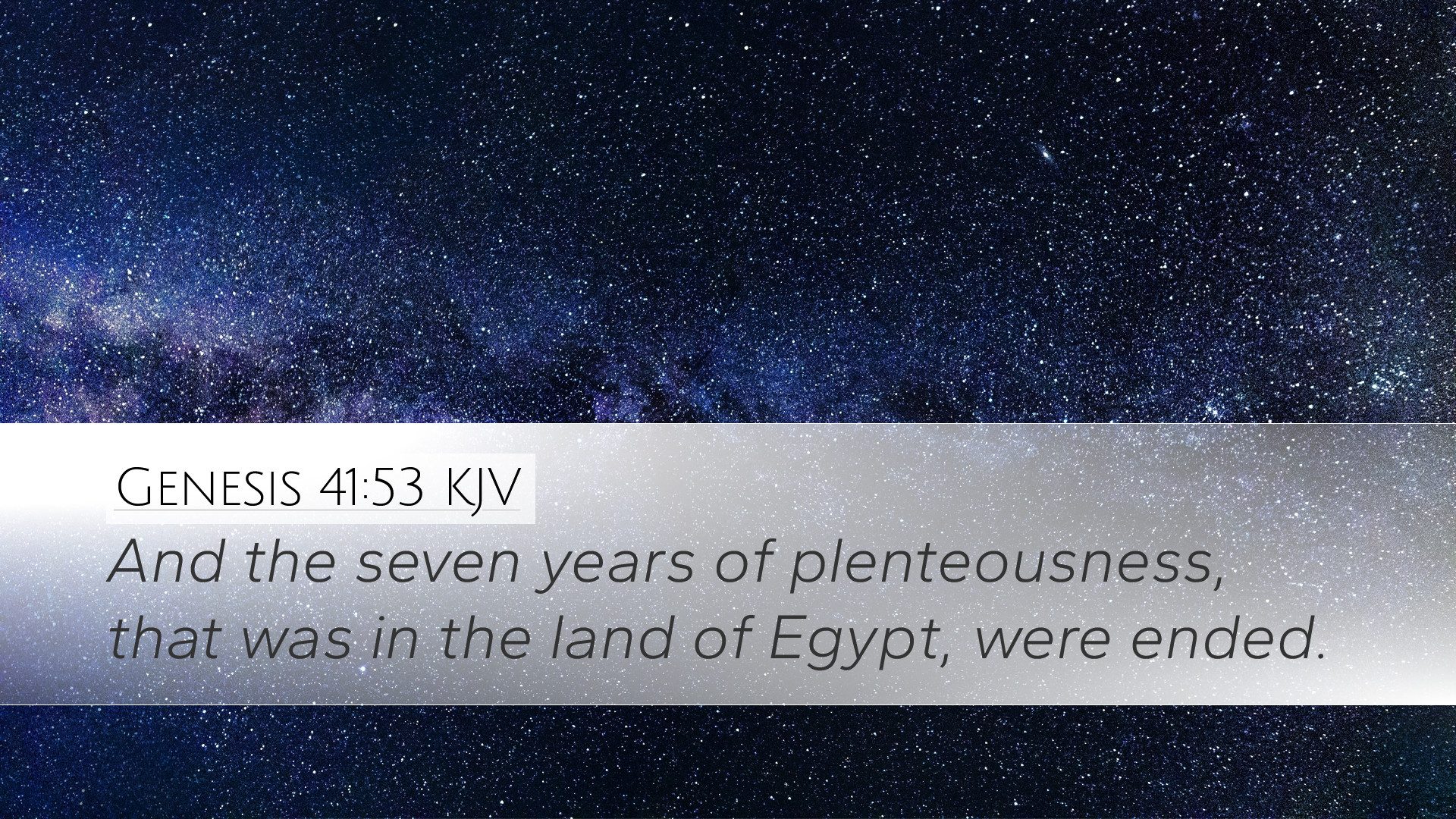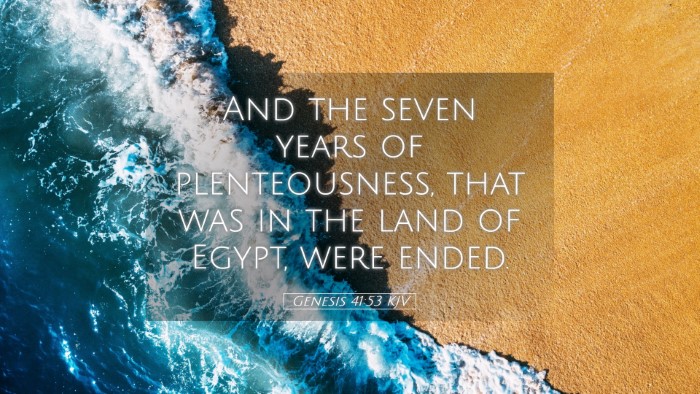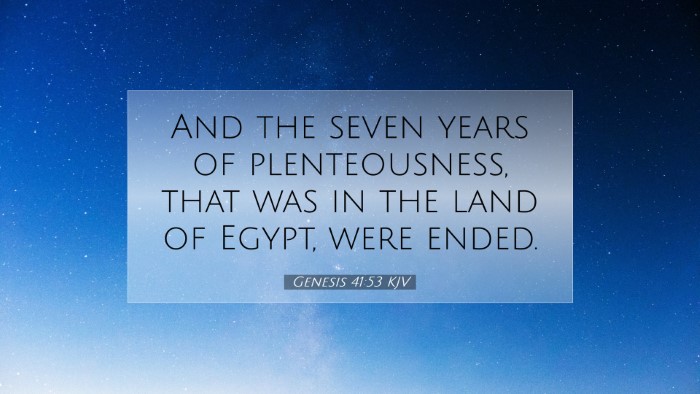Commentary on Genesis 41:53
Verse Context:
The verse Genesis 41:53 states, "And the seven years of plenty that were in the land of Egypt ended." This verse concludes the period of abundance predicted through Pharaoh's dreams, which Joseph interpreted, setting the stage for the ensuing famine.
Theological Significance
This pivotal moment reflects God's sovereignty over human affairs, illustrating how He orchestrates events in history for His divine purposes. The transition from plenty to famine embodies the cyclical nature of life and serves as a poignant reminder of the ephemeral nature of material abundance.
Insights from Public Domain Commentaries
Matthew Henry's Commentary
Matthew Henry emphasizes the importance of recognizing God's providential hand in both the years of plenty and the subsequent years of famine. He notes that the abundance served as a divine preparation for the coming scarcity, calling the faithful to be wise and responsible stewards of God's blessings.
- Prosperity and Preparation: Henry underscores that God often sends good times not merely for enjoyment but to prepare His people for future trials. The seven years of plenty were meant to equip Joseph and Egypt to handle the coming famine, highlighting the need for foresight and prudence.
- The Cycle of Life: Henry further explores the theme of cyclical life stages, reminding readers that both prosperity and adversity play significant roles in spiritual growth.
Albert Barnes' Notes on the Bible
Albert Barnes expands on the historical implications of this verse, noting how the unfolding events impacted not just Egypt but the surrounding nations as well. He sheds light on the geopolitical ramifications of the famine and emphasizes the narrative's broader significance in God's plan of redemption.
- Covenant and Preservation: Barnes points out that this famine was not merely a local event but part of the larger covenant plan of God. The preservation of Jacob's family through Joseph was critical, as it established the lineage through which Israel would arise.
- Leadership and Wisdom: The wisdom demonstrated by Joseph during the years of plenty was essential for Egypt's survival. Barnes encourages leaders to take note of Joseph's foresight and prudence in times of prosperity, using their resources wisely.
Adam Clarke's Commentary
Adam Clarke offers a more exegetical approach by delving into the original Hebrew text and the implications of the words used in this passage. He highlights the importance of recognizing divine timing in the narrative.
- God's Timing: Clarke notes that the precise timing of the end of the years of abundance aligns with God’s timing in the lives of His people. He suggests that awareness of divine schedules can lead to strengthened faith and trust in God's wisdom.
- Lessons in Faithfulness: Clarke emphasizes that just as Joseph was entrusted with resources during the years of plenty, believers today should also be entrusted with the gospel and spiritual gifts, which are to be used to prepare for times of trial.
Practical Applications
This passage offers several practical applications for contemporary readers, particularly for pastors and church leaders:
- Stewardship: The call to stewardship is paramount. Churches and individuals should prepare spiritually, financially, and emotionally for periods of difficulty.
- Faith in Famine: Recognizing that famine—whether literal or metaphorical—can follow times of prosperity urges believers to maintain their faith even in difficulty, trusting in God's provision.
- Community and Support: The communal response to famine is highlighted in the text; thus, churches should prioritize building strong community support systems to help those in need during challenging times.
Conclusion
The phrase "the seven years of plenty that were in the land of Egypt ended" serves not only as a historical marker but as a theological lesson. Both the richness and the desolation carry messages about God's sovereignty, provision, and the human response required in both contexts. Pastors, theologians, and students alike can glean immense wisdom from this narrative, encouraging all to pay attention to God's rhythms and respond faithfully to His provision.


